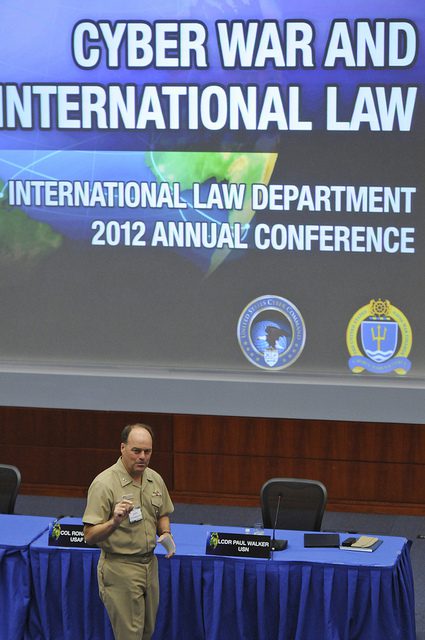
Warfare can be as fluid and as targeted as human ingenuity.
While we’re worrying — with justification — about the possibility of all-out nuclear war in an atomic Middle East, we also need to consider the possibilities inherent in a simple device that you are looking at right now.
That device is your computer, and the means of delivery of untold mayhem is the internet. Revenge hacking is an old deal. I had a number of attempts to hack me personally while I was in office. At least one of my colleagues was a victim of malicious hacking of her personal computer by irate gay rights activists. The Democrats for Life web site was maliciously hacked for by pro abortionists. Big web sites experience frequent malicious attacks.
Yesterday, the Vatican was hacked. A group of hackers took credit for it, with a pompous statement claiming that they were attacking the Catholic Church, not individual Christians. Last month, The World Weekly, a magazine in Britain was shut down by hackers after they criticized the Turkish president.
I view these isolated hacks of businesses, organizations and individuals, as a run-up for what could be a major catastrophe in the future. I’ve heard stories that at least some of the hacks of large commercial web sites was committed by the Chinese government.
That makes sense for a number of reasons, ranging from unfair business dealings to practice in developing big-time hacking skills for other purposes. This last leads directly to what I want to discuss in this post, which is cyber warfare on a mass scale as a weapon of war.
Cyber warfare has the potential to cripple entire nations in one swoop, and it can do it without spending a dime or firing a shot.
The primary purpose of bombing in warfare is to destroy the war-making capacity of a nation. The targets are the means of building armaments, transportation links and the infrastructure of the nation. If bombing is able to destroy these things, it will destroy the ability of the nation to carry war forward on a mass scale.
Cyber warfare can accomplish most of these same purposes. It can shut down economic systems, cripple or even halt modern manufacturing, bring the flow of traffic to a halt, and destroy communication at all levels of government, including among first responders. It can completely scramble the internal communications of nations or whole regions of the world.
Cyber warfare also has the potential to be the ultimate code-breaker. It can obtain data of all manner from government, business and individuals, revealing their plans, finances and secrets.
Cyber warfare can be real warfare. If it is backed up with more traditional forms of war making such as bombing and troop deployment, its tactical impact is almost beyond reckoning.
We’ve grown accustomed to learning that a business has been hacked and credit card information and social security numbers have been stolen. We’ve learned that our “identity” can be stolen and our lives ruined by cyber criminals.
What we haven’t discussed is that these things, while they are a disaster for their victims, are a like a loaded 22. They can do terrible damage on a small scale, but even that must be targeted properly to kill. Cyber war on an organized and mass scale against a nation, or even a whole region of the world, is more like a pile of nuclear warheads. The damage and the potential for lasting destruction are beyond measure.
I wish I didn’t have to raise this question, for the simple reason that we are all frazzled by the continuous wham! wham! wham! of the 24 hour news outlets.
However, we need to remember that most of the things these cable news networks keep us miserable about didn’t happen to us and they aren’t going to happen to us. A good bit of it, such as the “immigration crisis” stories that are trotted out in every off-year election, are deliberate manipulations to drive our votes. The news networks shut these down and put them away like clockwork, after the election.
The difference with the potential for cyber warfare is that the threat is real, and we aren’t paying attention to it. I believe, based on a lot of experience, that it’s not the threat you recognize and fear that gets you. It’s the danger you ignore that will take you down.
I’ve got a storm shelter because I recognize the deadly power of tornadoes and I know where I live. That’s a threat I recognize and fear. We need to take the same serious approach to the potential of cyber warfare.













